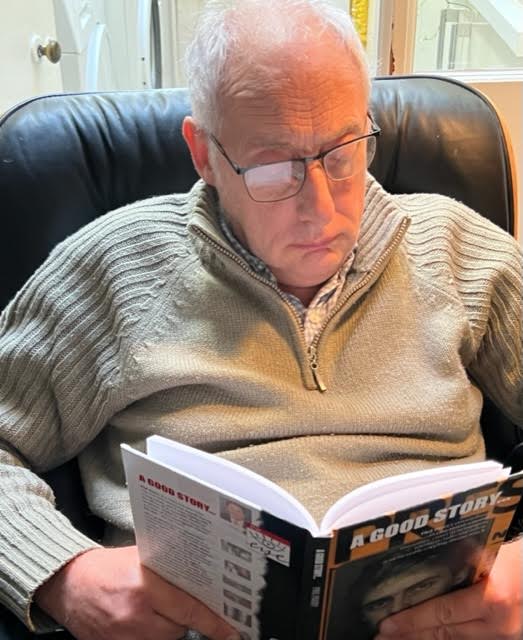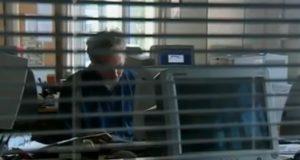- Upset coffee - 25th February 2026
- Not acting the part - 24th February 2026
- Death wish - 23rd February 2026

During 23 years with the BBC, and 41 years in journalism (when he was trained to use simple language, avoiding jargon), for our Editor Welshman Phil Parry working in a free environment has always been fundamental so that he could pursue his craft unhindered, and now this is underlined by a new book which looks at its history.
It is the bedrock of everything journalists like me do, and lately it has not just been those on the liberal left who have emphasised it, but people on the radical right too.
Free speech.
People in favour of it are campaigners against immigration, hard-line Brexiteers, the enemies of ‘Woke’, AS WELL AS lefties! But whoever says it, the fundamentals remain important.
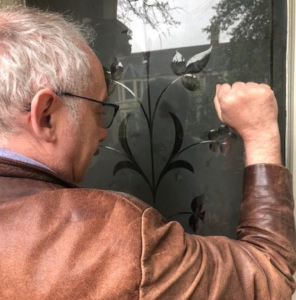
No-one put the case more pointedly than Voltaire when he said: “I wholly disapprove of what you say—and will defend to the death your right to say it.”
The concept is explored in the book ‘WHAT IS FREE SPEECH? THE HISTORY OF A DANGEROUS IDEA’ by Fara Dabhoiwala.
But it is under threat now in extremis.
According to the World Press Freedom Index (WPFI) 2023 – which evaluates the environment for journalism in 180 countries or territories, and is published on World Press Freedom Day (WPFD) (May 3) – the situation was “very serious” in 31 countries, “difficult” in 42, “problematic” in 55, and “good” or “satisfactory” in only 52 countries. In other words, the environment for journalists and those who believed in free speech, was ‘bad’ in seven out of 10 countries. Norway was ranked first for the seventh year running, with Ireland second, and Denmark third. The last three places were occupied solely by Asian states with North Korea at the bottom of 180 countries.
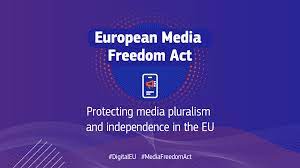
This is all set against a worrying backdrop. Even in the UK there is cause for concern, because ‘celebrity’ ‘journalism’, and low-quality, dumbed-down, ‘reports’ seem to prevail, which are light years away from the work I do (where I work in a free media environment).
In the EU there is official recognition of media freedom (which can be seen as kind of a synonym for free speech), with it saying: “… a European Media Freedom Act (was adopted), a novel set of rules to protect media pluralism and independence in the EU. The proposed Regulation includes, among others, safeguards against political interference in editorial decisions and against surveillance…”.


But these fine words belie the reality.
For example, after Slovenia seceded from Yugoslavia in 1991, it gave Radio Television of Slovenia (RTV-SLO) a mandate to report independently, unlike the state propaganda that passed for news under communism. Yet the Government there is now refusing to pay RTV-SLO’s budget, and wanted to pass a new media law that will make it easier to control.
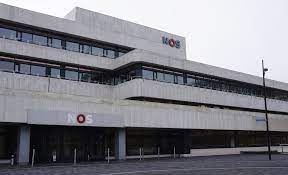
In the Netherlands the situation appears just as bad. Reporters on the national public news broadcaster, NOS, have been physically attacked at protests, and while reporting on Covid-19 measures. NOS removed its logo from satellite vans after they were repeatedly harassed in traffic.
In Latvia, the chief risk is the legal and financing structure. The country’s public-media law fails to include a set-aside tax, like the television licence fee that funds the BBC (which could now be cut after the Martin Bashir affair), and that leaves it vulnerable to political pressure, while it is not clear that the supervisory board will be protected from political appointments.
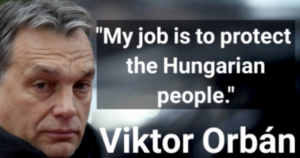
When Viktor Orbán won power in Hungary in 2010 he adapted Vladmir Putin’s blueprint, transforming the state media agency MTVA into a propaganda organ. The group was restructured into a shell company in a fashion that exempted it from the law governing public media, and during the European Parliament (EP) elections in 2019, editors at MTVA were recorded instructing reporters to favour Mr Orban’s Fidesz party.
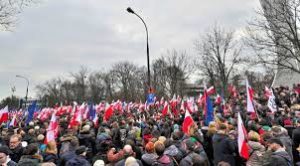
Poland’s Law and Justice (PLS) party followed Mr Orban’s example when it won power in 2015, and quickly turned TVP, the public television network, into a bullhorn for the party. The network championed campaigns against gay rights and demonised the opposition mayor of Gdansk. After he was assassinated by an extremist in 2019, a court told TVP to pay damages, but it did not comply.
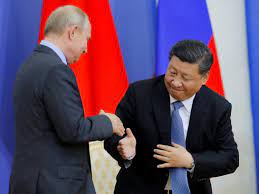
However outside the EU, the problems facing an independent media (for which read free speech), are even worse.
The prime example, of course, is Russia where RT (Russia Today) is accused of being a mouthpiece for Mr Putin. By the mid-2000s Russian news shows’ agendas were being set at government-led meetings.
Mr Putin signed a law that will allow Russia to declare journalists and bloggers “foreign agents” in a move that critics say will allow the Kremlin to target government critics.
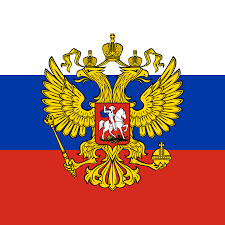
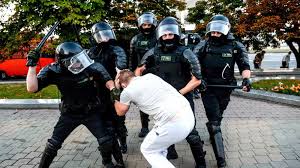
Under the vaguely worded law, Russians and foreigners who work with the media or distribute their content and receive money from abroad would become ‘enemies of the state’, potentially exposing journalists, their sources, or even those who share material on social networks to foreign agent status.
In Belarus the situation is also appalling. At least 16 journalists there are behind bars, and riot police are singling out reporters for arrests and beatings at protests as the media is intimidated.
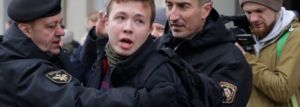
The embattled dictator Alexander Lukashenko, forced a Ryanair passenger plane to make an unscheduled stop in his capital in order to arrest the editor of an internet channel, NEXTA, that has been reporting on his crackdown. Roman Protasevich was taken off the plane, which was flying from Athens to Vilnius, the Lithuanian capital. Citing what it said was ‘evidence’ that there were explosives on board, the authorities forced the aircraft to land in Minsk as it passed through Belarusian airspace on its way to neighbouring Lithuania, sending a MiG fighter plane to escort the Ryanair jet down. The state news agency later reported that no explosives had been found, and it seems certain that the incident was invented purely as a way of arresting the journalist.

The alarming details came after Marina Zolotova, the editor of Tut.by, an independent news website in the counrry, said: “Blue press jackets and press badges have become targets. When journalists go to cover a protest they cannot be sure that they will come home. This is a real war by the authorities against independent journalism and their own people.”
It is clear that Mr Lukashenko is waging a war against journalists who have dared to report on his regime’s brutal crackdown against peaceful protesters. At least eight protesters were killed and hundreds more have alleged torture and rape, in police custody.

Among the most high-profile of those in prison is Yekaterina Bakhvalova, who was arrested as she filmed riot police firing stun grenades into a crowd demonstrating against the death in police custody of a fellow protesters.
Around the world it seems to be becoming worse for media freedom and investigative journalism, while even in countries which have a generally good record on media freedom, there are worries.
Dozens of reporters covering the anti-racism protests after the killing of the unarmed black man George Floyd that rocked the US, were apparently targeted by security forces using tear gas, rubber bullets and pepper spray. In many cases, the reporters said they were attacked despite showing clear press credentials.
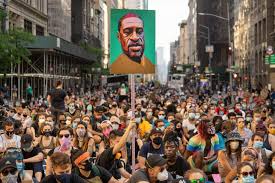
Such assaults “are an unacceptable attempt to intimidate (reporters)“, said the Committee to Protect Journalists (CPJ), a New York-based lobbying group. Attacks on journalists carried out by protesters have also been reported. The arrest of a CNN news crew live on air in Minneapolis, first drew global attention to how law enforcement authorities in the city were treating reporters covering the protests.
In total in the US, the Press Freedom Tracker (PFT), a non-profit project, says it is examining more than 100 “press freedom violations” at protests. About 90 cases involve attacks.
Despite operating in a (largely) free environment, the abuse I have to put up with is constant.
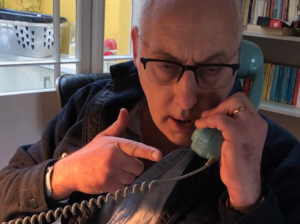
In the past I have been called online (wrongly), a “bastard”, a “liar”, a “misogynist”, a “little git”, and (accurately), a “troublemaker”, a “nuisance”, “irritating”, as well as “annoying” but this pales into insignificance with what is happening elsewhere around the globe.
Free speech is under attack everywhere – and it isn’t just people on the left who complain about that…

The memories of Phil’s astonishing, decades long award-winning career in journalism (when it has always been important to operate in a free environment), as he was gripped by the rare neurological disabling condition Hereditary Spastic Paraplegia (HSP), have been released in ANOTHER book ‘A Good Story’. Order it now
‘WHAT IS FREE SPEECH? THE HISTORY OF A DANGEROUS IDEA’ by Fara Dabhoiwala is published by Allen Lane.
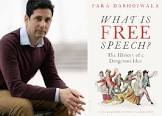
Tomorrow – how protests against cuts in disability benefits are gathering momentum, and South Wales could be leading the way.








